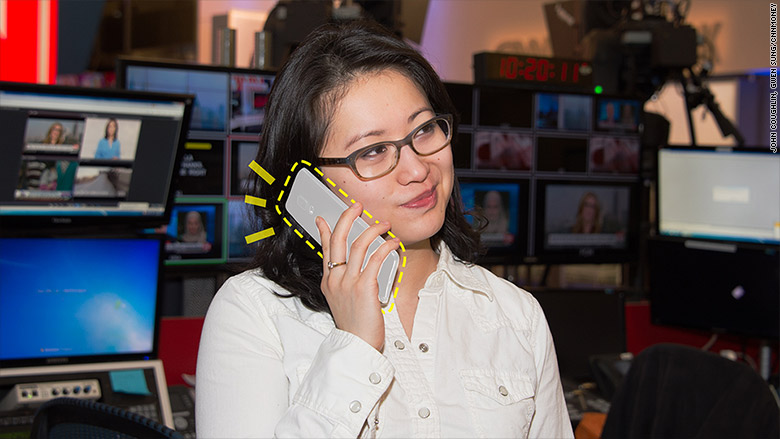
I've been living without a cell phone for the past four and a half months.
The decision to live without a phone wasn't mine to make, initially. My gold iPhone 5S was stolen after I left it on a shelf of plus size sweaters back in September. I furiously checked Apple's (AAPL) Find My iPhone feature. I emailed and tweeted at the retailer. I went back to the store twice to offer employees a $300 reward to help me get it back. No luck.
When I came to terms with the fact that I wasn't going to get it back, I decided to prove to this thief (and myself) that I was robbed of nothing -- that it would not affect my life in any way.
Easier said than done. To get by without a phone, I had to make plans in advance, keep my word and trust others to do the same. And then I just winged it if I really had to get something done.
(And, I have a confession: I had an iPad that I carried around with me everywhere ... but since it only connects via Wi-Fi, it wasn't as helpful as you might think).
Whenever I was going somewhere new, I would look up the place on my iPad beforehand and take a screenshot of the map. That way, if I didn't have Wi-Fi, I could at least look at a (static) map.
When I had to take a photo, I put my shame and pride aside and took pictures with my iPad. And when I wanted to take a selfie, I would just ask someone to snap a photo.
If I was in a real pinch, sometimes I had to ask people for their phones.
Late to a meeting with my boss, and stuck in traffic, I prayed for a Wi-Fi-enabled subway station or Starbucks to send an email from the back of a cab. No cigar. So, the only option I had left to get in touch with him was to call ... on the cab driver's cell phone.
When I had a phone interview for my new job at CNNMoney, I borrowed my co-worker's cell phone.
And when Google logged me out of Gmail and I had to log back in with a two-step authentication process, I had to email my co-worker to pick up my desk line (my backup number) so he could tell me what the code was.
Not having a cell phone was a nuisance for my family too. My mom (who has an Android phone) couldn't just call me. She had to turn on her computer, log into Google (GOOGL) Hangouts, message me and wait for me to respond, and then invite me to chat.
Related: In the wireless price war, consumers win but investors lose
The past 135 days have been an adventure. But some things were surprisingly easy to accomplish without a cell phone. Wi-Fi is just about everywhere in New York. Bars, restaurants, art galleries and subway stations all have hotspots.
Since most of my friends have iPhones, they had no trouble contacting me -- FaceTime Audio and iMessage still worked on my MacBook and iPad. Facebook (FB) Messenger, Google Hangouts, Skype, and email filled in the rest of the communication gaps.
There were friends I missed calling, and I have missed my Instagram, Zipcar and New Jersey Transit ticket purchasing apps. But other than that, I can't say I missed much else.
In fact, I'm glad I've been cell phoneless these past few months. But my streak is about to end: My new job requires me to have one, and I already feel anxious at the thought.
I think we are far too dependent on smartphones. On average, American consumers spend almost three hours every day on a mobile device, according to mobile analytics firm Flurry. Multiple apps that track smartphone usage have found that the average person checks his or her phone 60 to 125 times per day.
So, whenever I tell someone I haven't been using a cell phone, they act bewildered. How do people call you or reach you? How do you meet up with friends? What do you do in emergencies?
These questions perfectly illustrate the dependency, fear, and burden that we now have -- the price we pay for the benefits of mobile connectivity.
But, mainly, we only gain convenience. The cost of this convenience is a short tether that chains us to this one device, and deprives us of two basic survival skills -- courage and resourcefulness.

